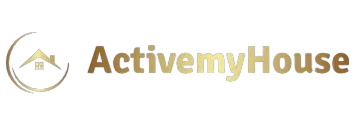The Canadian rental landscape is undergoing a quiet but profound transformation. As property owners, tenants, and managers adjust to the evolving expectations of digital living, tech-enabled property management is reshaping how rental housing is marketed, maintained, and experienced across the country.
From major urban centers like Toronto and Vancouver to mid-size cities such as Halifax, Ottawa, and Edmonton, landlords are turning to smart technologies and integrated software systems to streamline operations and deliver better service. The result is a new standard for rental housing—one that prioritizes efficiency, transparency, and tenant satisfaction.
The Digital Shift in Canadian Property Management
Traditional property management in Canada has long relied on manual processes—phone calls for maintenance, paper leases, and in-person rent collection. These methods are increasingly seen as outdated, particularly in competitive rental markets where tenant expectations have evolved alongside technology.
Today’s renters—especially millennials and Gen Z—prefer mobile-first experiences. They want to view listings online, sign leases digitally, submit maintenance requests through apps, and receive real-time updates about their rental status. Property owners and managers who fail to meet these expectations risk falling behind.
Technology is no longer optional. It’s becoming the baseline for professional rental management.
Tools That Are Redefining the Rental Experience
Tech-enabled property management is not defined by a single tool, but by an ecosystem of integrated systems that support both tenant and landlord operations.
Digital platforms now handle:
- Online applications and leasing: Tenants can search, apply, and sign leases remotely—reducing paperwork and speeding up the move-in process.
- Automated rent collection: Platforms like RentMoola, Buildium, and PayProp enable secure, scheduled rent transfers, reducing missed payments and improving cash flow.
- Smart maintenance coordination: Tenants can submit repair requests online, while managers can dispatch and track service calls digitally.
- Remote property access: Smart locks, keypads, and video entry systems allow secure, keyless access for tenants and maintenance personnel.
These systems not only improve efficiency but also create data trails that help landlords make better decisions about pricing, renewals, and budgeting.
Benefits for Landlords and Property Managers
For owners and managers, embracing technology leads to immediate operational gains. Tasks that once required hours of manual coordination can now be handled in minutes. More importantly, digital platforms help scale operations—essential for managers overseeing multiple units or properties in different provinces.
Among the top benefits:
- Lower administrative burden: Automation reduces the need for physical paperwork and in-person interactions.
- Better tenant retention: Tenants are more likely to renew leases when they receive fast responses and convenient service.
- Greater transparency: Dashboards and digital records simplify compliance, accounting, and tax preparation.
This operational streamlining becomes especially critical during periods of high turnover, rent freezes, or emergency maintenance—times when traditional systems may buckle under pressure.
Challenges in Adoption and Integration
Despite the clear advantages, tech adoption in Canadian property management still faces obstacles. Smaller landlords, particularly those with legacy systems or limited budgets, may hesitate to invest in digital tools. There’s also a learning curve: integrating new platforms requires training, time, and occasionally, a rethinking of internal workflows.
Privacy concerns are another factor. Landlords must comply with Canadian privacy laws such as PIPEDA when handling tenant data digitally. Ensuring platforms are secure and compliant is not just best practice—it’s legally essential.
Nonetheless, as more companies enter the proptech space, pricing is becoming more competitive and platforms more user-friendly. Landlords who take the first step often find the transition easier and more beneficial than expected.
The Future of Rentals in Canada
As rental demand continues to rise—driven by population growth, urban migration, and shifting homeownership trends—tech-enabled property management is poised to become the norm. In many cities, tenants are already choosing landlords based not just on price or location, but on their ability to offer responsive, tech-savvy service.
Expect to see greater use of AI tools for tenant screening, predictive maintenance systems that prevent costly repairs, and digital concierge services in multi-unit buildings. The future of Canadian rentals will be powered by platforms that are as intuitive as the apps tenants use in every other aspect of their lives.
Conclusion: A New Standard for Canadian Rentals
Tech-enabled property management is no longer an industry buzzword—it’s a defining shift in how rentals are operated, experienced, and evaluated. For Canadian landlords and tenants alike, this change brings increased efficiency, better service, and a more professional rental ecosystem.
Those who embrace these innovations early will not only operate more effectively but also stand out in a competitive market where tenant satisfaction and operational transparency are more important than ever.

